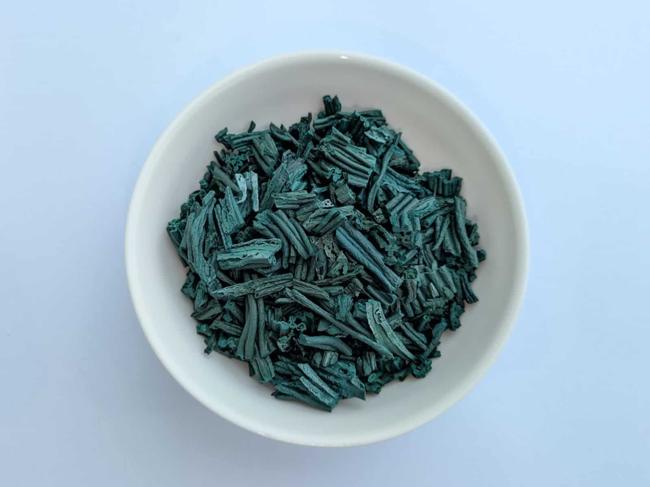Summary
Scottish biotechnology company ScotBio has developed a protein-rich ingredient derived from Spirulina, a blue-green microalgae, following a collaborative
Source: vegconomist

AI News Q&A (Free Content)
Q1: What recent innovation has ScotBio introduced in the plant-based protein market using Spirulina, and how does it contribute to food industry advancements?
A1: ScotBio has developed a protein-rich ingredient derived from Spirulina, a blue-green microalgae, offering a novel plant-based protein source for the food industry. This innovation addresses the growing demand for sustainable and versatile alternatives to traditional animal proteins, aligning with global trends toward environmentally friendly food production and expanding applications in plant-based foods.
Q2: How does Spirulina-based protein compare to other plant-based proteins in terms of nutritional value and potential health benefits?
A2: Spirulina-based protein is notable for its high protein content and rich profile of essential amino acids, vitamins, and minerals. Compared to other plant-based sources like pea or soy protein, Spirulina is also a source of antioxidants and anti-inflammatory compounds. Studies indicate that while Spirulina supports optimal growth and health in animal models, more research is needed to fully understand its long-term health impacts in humans.
Q3: What is the significance of protein quality metrics like PDCAAS and DIAAS in assessing plant-based proteins for human consumption?
A3: Protein quality metrics such as the Protein Digestibility Corrected Amino Acid Score (PDCAAS) and Digestible Indispensable Amino Acid Score (DIAAS) are essential for evaluating plant-based proteins. These metrics assess digestibility and the balance of essential amino acids, which determine how well a protein source meets human nutritional needs. The FAO has recommended DIAAS as a more accurate measure than PDCAAS for modern dietary assessment.
Q4: What are the environmental and economic benefits of developing algae-based proteins like those from Spirulina for the food industry?
A4: Algae-based proteins offer significant environmental advantages, including lower land and water usage compared to animal agriculture, and reduced greenhouse gas emissions. Economically, adopting algae proteins can decrease reliance on traditional protein sources, stabilize supply chains, and support the growth of sustainable food systems, benefiting both producers and consumers.
Q5: According to recent scholarly research, how do alternative proteins from algae impact growth and gut health in pre-clinical models?
A5: A 2024 study found that diets containing Spirulina and other alternative proteins generally supported optimal growth and bone development in rats, similar to those fed casein. However, the study also highlighted the impact of different protein sources on gut microbiota diversity, suggesting that while alternative proteins are promising, their long-term health effects require further investigation.
Q6: What technological advancements have been made in the identification and quality control of microalgae-based protein sources for food applications?
A6: Recent advances include the use of digital image analysis and machine learning for accurate identification and quantification of microalgae species, such as Scenedesmus. Automated techniques improve the consistency and reliability of algae biomass assessments, which is crucial for quality control and optimizing protein yield in food industry applications.
Q7: What are the main challenges and future directions for plant-based protein innovation, particularly those derived from algae?
A7: Key challenges include optimizing protein extraction methods to maximize nutritional value, ensuring safety and allergenicity, and improving sensory qualities like taste and texture. Future directions involve integrating advanced bioprocessing technologies, expanding clinical research on health outcomes, and increasing consumer acceptance of algae-derived proteins in mainstream diets.
References:
- Plant-based diet - Wikipedia: https://en.wikipedia.org/wiki/Plant-based_diet
- Protein quality - Wikipedia: https://en.wikipedia.org/wiki/Protein_quality
- Plant and insect proteins support optimal bone growth and development





